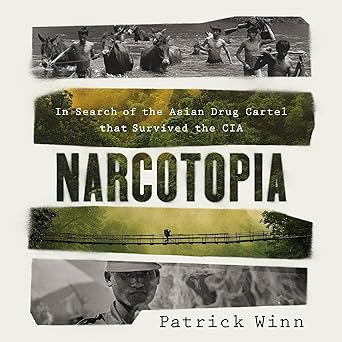
The Wa State, a nation hidden in the heart of Asia's narcotics-producing region, is a story of ambition, power, and the danger of addiction. For decades, the Wa have dominated the region's lucrative methamphetamine trade, making them a major player in the global illicit economy. With a 30,000-strong army, they have set up a formidable presence in the Golden Triangle, a mountainous stretch of land between Thailand, China, and Burma. The Wa's production of high-quality methamphetamine has made them almost untouchable, earning them the reputation as the most feared and respected figures in the region's narcotics underworld.
The Wa State is a nation within a nation, with its own laws, anthem, schools, and even an electricity grid. This remarkable achievement is a testament to the Wa's ingenuity and resilience, having risen from the ashes of a once-destroyed territory. Their success has also made them a model of cooperation and unity among indigenous tribes, inspiring others to follow in their footsteps. Unfortunately, the Wa's position at the top of the global narcotics hierarchy has led to intense scrutiny from US policymakers, who view them with suspicion and disdain. The Wa have been labeled as "kingpins" who "poison our society for profit," highlighting the complex and often toxic nature of the global narcotics trade.
Despite their formidable power, the Wa State is also a cautionary tale about the dangers of addiction and the devastating impact of the narcotics trade. The US intelligence community has long struggled to navigate the intricate web of alliances and rivalries within the Wa State, often falling victim to covert operations gone wrong. As the US effort to dismantle the Wa's narcotics empire continues, one thing is certain: the legacy of the Wa State will endure for years to come, a powerful reminder of the intricate dance between addiction, power, and the devastating consequences that can unfold.
I have always been fascinated by the complex stories of nations and communities that operate outside the boundaries of our conventional understanding. Recently, I had the opportunity to delve into such a narrative, and I must say that it was a thought-provoking journey. The tale of a nation hidden in the heart of Asia's narcotics-producing region is a powerful reminder of the intricate dance between ambition, power, and addiction.
As I read through the pages, I couldn't help but wonder what drives a community to create a nation within a nation, with its own laws, anthem, schools, and even an electricity grid. The Wa State's remarkable achievement is a testament to the ingenuity and resilience of its people, having risen from the ashes of a once-destroyed territory. Their success has also made them a model of cooperation and unity among indigenous tribes, inspiring others to follow in their footsteps. However, this level of accomplishment also comes with a steep price - the Wa State's position at the top of the global narcotics hierarchy has led to intense scrutiny from US policymakers, who view them with suspicion and disdain. I couldn't help but think of the devastating impact that the narcotics trade has on communities, families, and individuals.
One of the most striking aspects of this story is the way it highlights the complexities of the global narcotics trade. The Wa State's position as a major player in this trade has led to a complex web of alliances and rivalries, with both the US and other nations struggling to navigate these intricate relationships. The US intelligence community has long struggled to dismantle the Wa's narcotics empire, often falling victim to covert operations gone wrong. As I reflected on this narrative, I couldn't help but think of the many families and communities that have been torn apart by the narcotics trade. The Wa State's story serves as a powerful reminder of the devastating consequences of addiction and the importance of understanding the complexities of this issue.
Rating: 3.5 / 5.0
The Wa State, a nation hidden in the heart of Asia's narcotics-producing region, is a complex exploration of ambition, power, and addiction. The Wa's dominance of the region's lucrative methamphetamine trade has earned them a formidable presence, with a 30,000-strong army and a reputation as the most feared and respected figures in the region's narcotics underworld. The Wa State's remarkable achievement is a testament to the ingenuity and resilience of its people, with its own laws, anthem, schools, and electricity grid. However, this success comes with a steep price, as intense scrutiny from US policymakers and the devastating impact of the narcotics trade on communities and individuals. The Wa State's story serves as a powerful reminder of the intricate dance between addiction, power, and its devastating consequences.